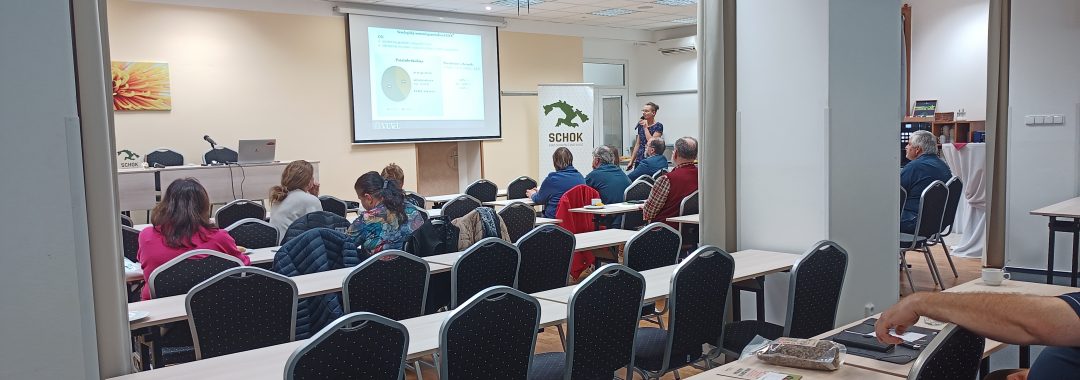On the first Saturday of November, a professional seminar of the VRI ACADEMY titled “New Parentage Testing Method and Health Findings for Sheep and Goats” took place at the Hotel Luna in Kouty near Ledeč nad Sázavou. The meeting filled the entire morning, attracting breeders and other experts in the breeding and health of small ruminants from across the Czech Republic. It was hosted by the Veterinary Research Institute in cooperation with SCHOK, z.s. (Association of Sheep and Goat Breeders), with financial support from a project within the Rural Development Programme.
The attendees had the opportunity to become acquainted with several important topics. Fundamentally new information for breeders was presented by Ing. Michaela Přibáňová, Ph.D., who represented the Czech Moravian Breeders' Corporation (CMBC). She first spoke about the legislative and technical aspects of record-keeping, the obligations of breeders to tag and register animals, and introduced the databases, which are being created, for storing electronic data on animals, developing in relation to the transition to a different method of parentage determination. She then recalled the history of methods for parentage determination and informed about the current change from testing using microsatellites, which was provided by SVI Jihlava, to testing using SNP markers, which will be fully managed by (CMBC, Inc.), including record-keeping and data storage. The SNP marker method itself is promising due to its accuracy, the possibility of routine processing, potential for process automation, lower cost, and, most importantly, its great potential for utilizing the obtained data, not only for parentage testing but primarily for calculating genetic breeding values. Then, Prof. MVDr. Leoš Pavlata, Ph.D., from Mendel University, presented the current situation in microminerals in sheep and goat nutrition, emphasized the differing needs during various phases of the oestrous cycle of animals, and highlighted the potential overdosing and possible interactions between them. Furthermore, an interesting contribution was made by Ing. Tereza Ranná from the Institute of Animal Science, who informed about the possibilities of assisted reproduction in small ruminant breeding. Although these methods are expensive, often exceeding the value of the animal being bred, they still represent a promising path for small ruminant breeders to preserve valuable genetic material and possibly improve the genetic potential of their herds.
MVDr. Jiřina Marková, Ph.D., from the VRI, concluded the programme with a summary of the results of the project QK1910082 in relation to the study of paratuberculosis. From their results, it is clear that this chronic disease, which shows clinical signs years after infection, is not a major issue in farms in the Czech Republic. However, it is important to follow biosecurity principles, especially when purchasing new stock for the herd. She also provided an example of an infection in a goat herd through the feeding of fresh bovine colostrum and milk from a farm with a positive finding of paratuberculosis.
The event, organized by the VRI as part of the Rural Development Programme (project registration number 23/016/0121a/564/000059), was an excellent opportunity for experts and breeders to exchange knowledge and experiences in the field of sheep and goat health and reproduction.


